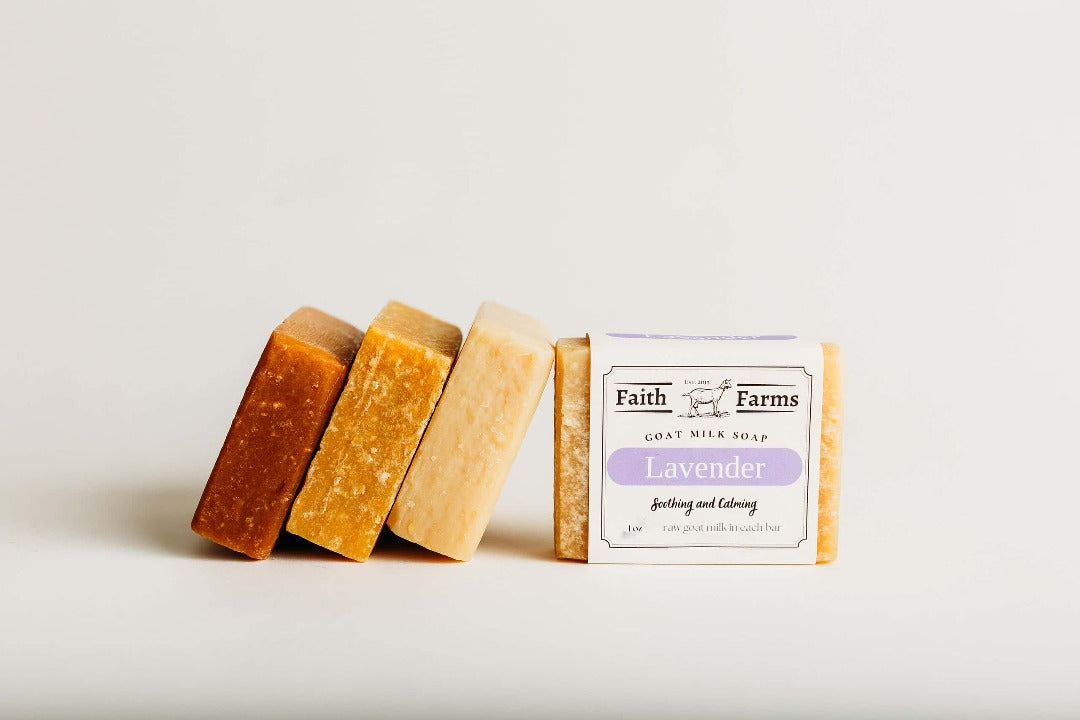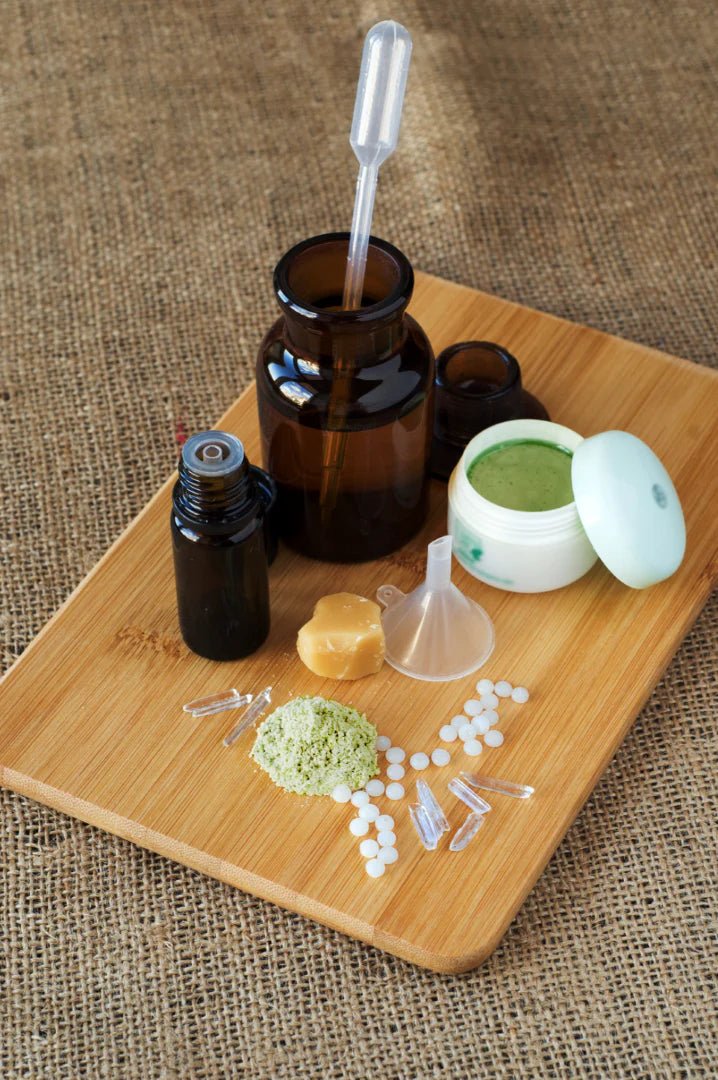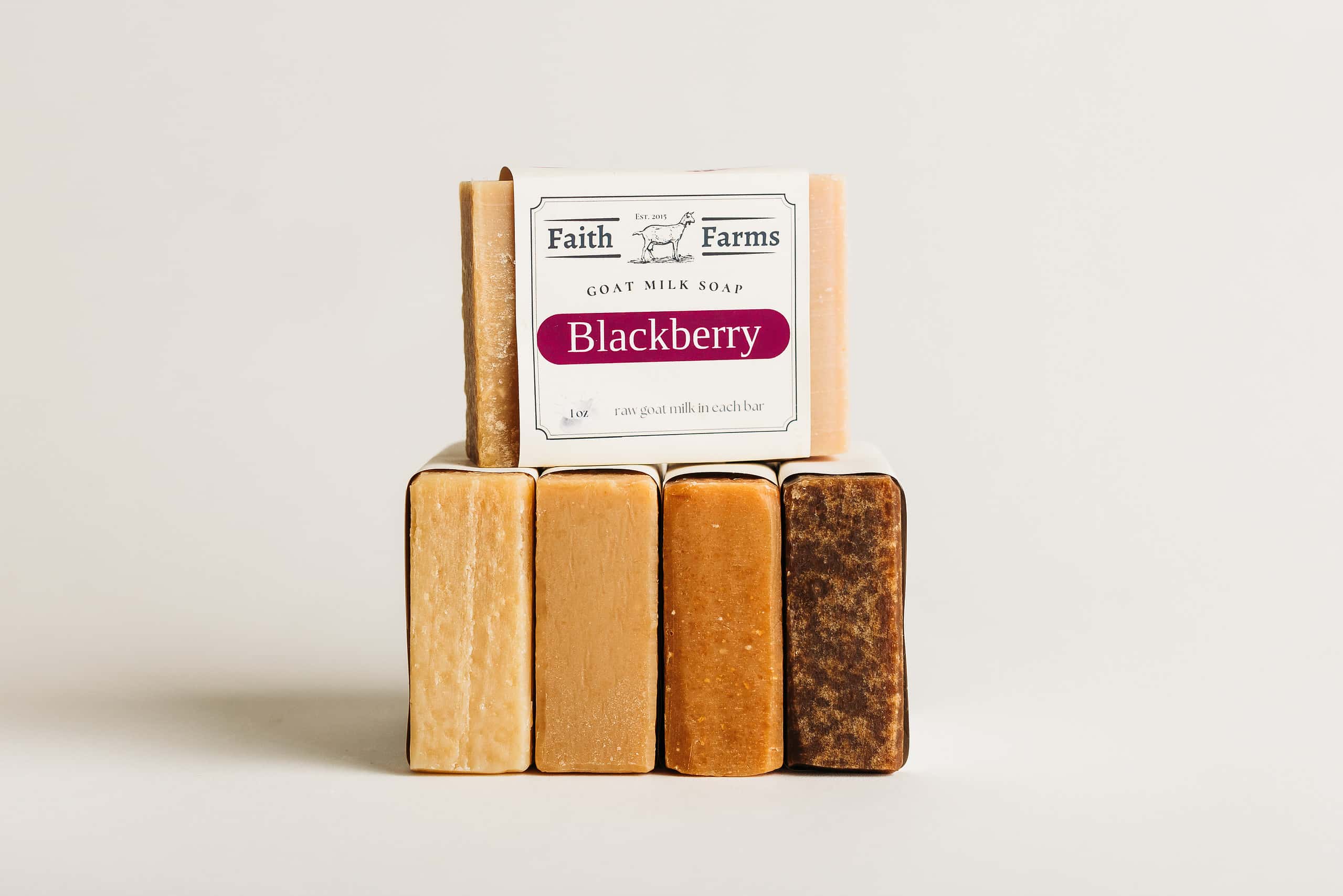This post will teach you which body soap ingredients to avoid.
If you're trying to live more clean-conscious and have been curious about what shouldn't be in a bar of soap, this post is exactly what you need to read.
There are so many harmful chemicals in soap and shampoo these days, and it's important to know what to look for on the ingredients list when shopping.
We consider ourselves soap experts here at Faith Farms. And we are happy to teach you what to avoid in body soap, as well as inform you on many of the store-bought soap harmful effects.
We're providing an exact list of harmful chemicals in soap that you should avoid. We hope you're encouraged to make healthier, more natural soap choices after reading this post.
what to avoid in soap
We hope you enjoy this post on which body soap ingredients to avoid.

Body Soap Ingredients to Avoid
What ingredients should you avoid in soap?
If you've been looking into switching to natural products, chances are you've been hearing about the toxins in most store-bought soaps, laundry detergent, skincare products, and more.
Here's a list of most of the toxins in body soap to be mindful of.
1. Parabens Commonly used as preservatives in cosmetics, parabens are synthetic compounds that mimic estrogen and have been linked to potential endocrine disruption.
2. Formaldehyde A strong preservative with potential health risks, formaldehyde is often released by certain preservatives in cosmetics and is a known irritant.
3. Phthalates Used to enhance fragrances and flexibility in plastics, phthalates may pose health concerns such as endocrine disruption, reproductive toxicity, and potential carcinogenic effects.
4. Synthetic fragrances Artificially created scents in cosmetics, synthetic fragrances may contain undisclosed chemicals and allergens, prompting concerns for some individuals.
5. Alcohol Often used for its drying properties, alcohol in skincare can strip the skin of natural oils, leading to dryness and potential irritation.
6. Dioxane A byproduct of certain cosmetic ingredients, dioxane is a possible carcinogen, and its presence is a concern in many skincare products.
7. Ethanolamine Found in some personal care products, ethanolamines, including DEA and TEA, can act as emulsifiers but are associated with potential skin and eye irritation.
8. Propylene glycol A synthetic compound with humectant properties, propylene glycol may cause skin irritation in some individuals.
9. DEA-related ingredients Diethanolamine (DEA) and related compounds are used as emulsifiers, but concerns exist about their potential to form carcinogenic nitrosamines.
10. Toluene A solvent in some cosmetics, toluene has health concerns, including potential neurological and developmental effects.
11. Triclosan An antimicrobial agent used in some antibacterial products, Triclosan is under scrutiny for its potential environmental impact and health concerns such as endocrine disruption and antibiotic resistance. These factors have led to restrictions and bans in certain products and regions.
12. Polyethylene glycol (PEG) Used as a thickener or softener, PEG may be contaminated with harmful substances and can contribute to skin irritation.
13. Oxybenzone A chemical UV filter in sunscreens and some soaps, oxybenzone has raised concerns for its potential hormonal effects and environmental impact.
14. Urea Used for hydration in skincare, urea may cause skin irritation in some individuals.
15. Sodium laureth sulfate A foaming agent in many personal care products, sodium laureth sulfate may contribute to skin irritation, especially in sensitive individuals.
16. Synthetic fragrance containing parabens or phthalates The term "fragrance" on ingredient lists may include various undisclosed chemicals, potentially causing allergies or sensitivities. This is why it's important to use a brand of soap you can trust, that way you can know that the fragrance used does not contain parabens or phthalates.
17. Sulfates Harsh detergents added for foaming, sulfates like sodium lauryl sulfate may strip the skin of natural oils, causing dryness.
18. Cocamidopropyl betaine A surfactant in personal care products, cocamidopropyl betaine may cause skin irritation in some individuals.
19. BHA and BHT Synthetic antioxidants used as preservatives, BHA and BHT have potential links to cancer, endocrine disruption, and allergic reactions.
20. Methylisothiazolinone A preservative in some cosmetics, methylisothiazolinone can cause skin irritation and has raised concerns about allergic reactions.
21. Dyes Synthetic colorants used in cosmetics may cause skin irritation and allergic reactions. Additionally, some studies suggest that certain synthetic dyes may have carcinogenic or toxic properties.
22 and 23. Mineral Oil/Petrolatum These are derived from petroleum and may be found in some soaps. While they can be effective moisturizers, the concerns about their potential contaminants override any benefit. The refining process for these substances may introduce potential carcinogens, like polycyclic aromatic hydrocarbons (PAHs), into products, posing a risk to consumers.
In addition, these ingredients can form a barrier on the skin, leading to irritation, especially for those with sensitive skin.
What is the most dangerous ingredient in soap making?
All of the body soap ingredients to avoid that we listed above are considered dangerous. However, we're taking the opportunity here to particularly point out the use of synthetic fragrances containing parabens and/or phthalates.
You will typically see these labeled on the ingredients list as simply "fragrance" or "fragrance oil." However, it's important to note that there are synthetic fragrances that do not contain parabens or phthalates, and many more-natural companies do choose to use them, including us here at Faith Farms.
This is why it's important to use a brand of soap you can trust, that way you can know that the fragrance used does not contain parabens or phthalates.
To completely eliminate any potential risks, many people choose products labeled as "fragrance-free" or "unscented," as these formulations may not contain synthetic fragrances or may use fewer fragrance ingredients.
That, along with the care for those with sensitive skin, is the reason we offer many fragrance-free options at Faith Farms.
Additionally, opting for products with natural fragrances derived from essential oils can be a way to avoid synthetic fragrance as well. We have a variety of goat milk soaps here at Faith Farms that are only scented with natural essential oils!
Click here to try Faith Farms nontoxic goat milk soap! Handmade in the USA, affordable, and completely natural!
What is the Healthiest Soap for Your Body?
What is the best natural soap? What is the cleanest soap?
Faith Farms goat milk soap is made with absolutely ZERO of the soap ingredients to avoid that we listed above! Not only does our soap not contain those harmful substances, but, because it contains goat milk, it also holds a vast array of added benefits as well! Just a few of the goat milk soap benefits include:- Works to heal acne
- Repairs damaged skin
- Cleanses gently and deeply
- Prevents premature aging
- Keeps skin soft and moisturized
- Can help in skin lightening and fading dark spots
- And more!
Which body soap kills the most bacteria?
Not only does goat milk soap possess the benefits listed above, but it's also antibacterial, antifungal, and anti-inflammatory. This makes it the perfect choice for a healthy, natural soap alternative that will still kill bacteria and get your skin clean!

Click here to try Faith Farms nontoxic goat milk soap! Handmade in the USA, affordable, and completely natural!
This post was all about body soap ingredients to avoid.

